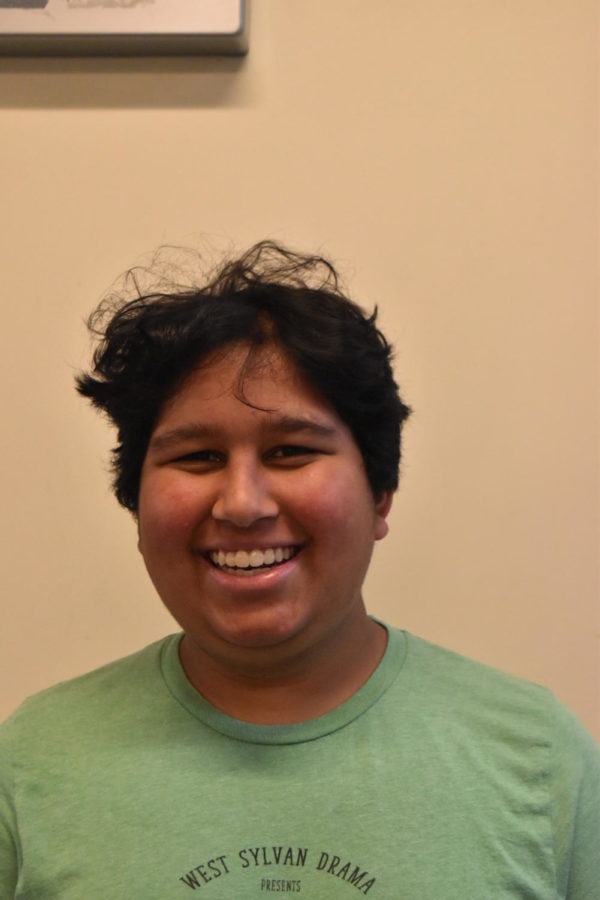Profile: Suresh Sehdev
It was Martin Luther King Jr. Day in second grade. The teacher had just taught the class about Martin Luther King Jr.’s assassination and sent the kids off to reflect on it. Suresh Sehdev turned around as a girl tapped him on his shoulder.
“I’m going to shoot you because you look like Martin Luther King Jr,” the girl said out loud and walked away.
Suresh is now a Freshman at Lincoln High School. Most days he can be seen walking down the halls wearing a plain shirt and loose-fit pants complete with a backpack strung across his body. On some occasions he still thinks back to that very day seven years ago.
“I’m darker skinned because I’m from India. At the time it didn’t faze me that what she said was wrong,” he says with a strong voice. “I think it brings out the topic of how ignorant kids can be to real world problems and how growing up we say things that are so wrong about racism and sexism. I think a lot of what I believe in is learned from my past. And I’m so thankful to have people like Ms. Fitzgerald, who taught me leadership last year and has guided me to find a position where I can help kids.”
When people are younger, sometimes they are oblivious to the problems in our society, leading to unthoughtful actions. Suresh believes that the main problem stems from a lack of education from adults and role models.
“Growing up, no one really teaches us about the harsh truth of the lives of people of color and people in different communities, or at least I wasn’t taught those topics. We really never learned about topics of culture that I could relate to and when we did, it was always evolved around death, pain, irony and pity,” Suresh reflects. “So I think instead we need to start teaching them about cultural appropriation, cultural respect, and modern day problems so they can be familiar with as they grow up.”
With the heavy influence of social media, kids grow up with so many different angles of exposure from the internet. To Suresh, social media can be powerful and degrading at the same time.
“So many people support one another on social media and spread great ideas but along with that comes people who are negative and publicly shame others or their ideas,” he says. “We’re young, we get taught what we see and if we are seeing bad things all over the internet, then we are obviously going to start to agree with them because we form ourselves in this bubble.”
This is one of the many reasons Suresh spends lots of time advocating online. He has created an Instagram and website dedicated to talking about his views and educating others on social justice, culture and sexuality.
“A lot of people find it hard to be themselves because they don’t find enough representation of who they are on social media or around the halls of Lincoln. People are scared to be alone or the only one … so when they see social media or students bashing what you believe, it doesn’t motivate them to want to advocate their own ideas,” he says. “I want people to find their differences and love themselves.”
Despite his influence on social media, Suresh says he is not here to change anyone’s views.
“I’m here to just tell people what I believe and in no way am I trying to tell them that what I’m saying is right. If the readers have strong opinions that don’t fit mine, there’s no way I can expect them to change. I’m here to give my own voice and the voice of others, so I hope that people can take what I say and think about it.”
Criticism in society is quite common. Suresh wants people to know that they should never be ashamed about who they are. He hopes to inspire the community around him through his online platforms and in person, one step at a time. Today, Suresh encourages people to do something little to make someone else feel welcomed and loved.
“There’s light at the end of the tunnel,” he says. “I promise you that.”

